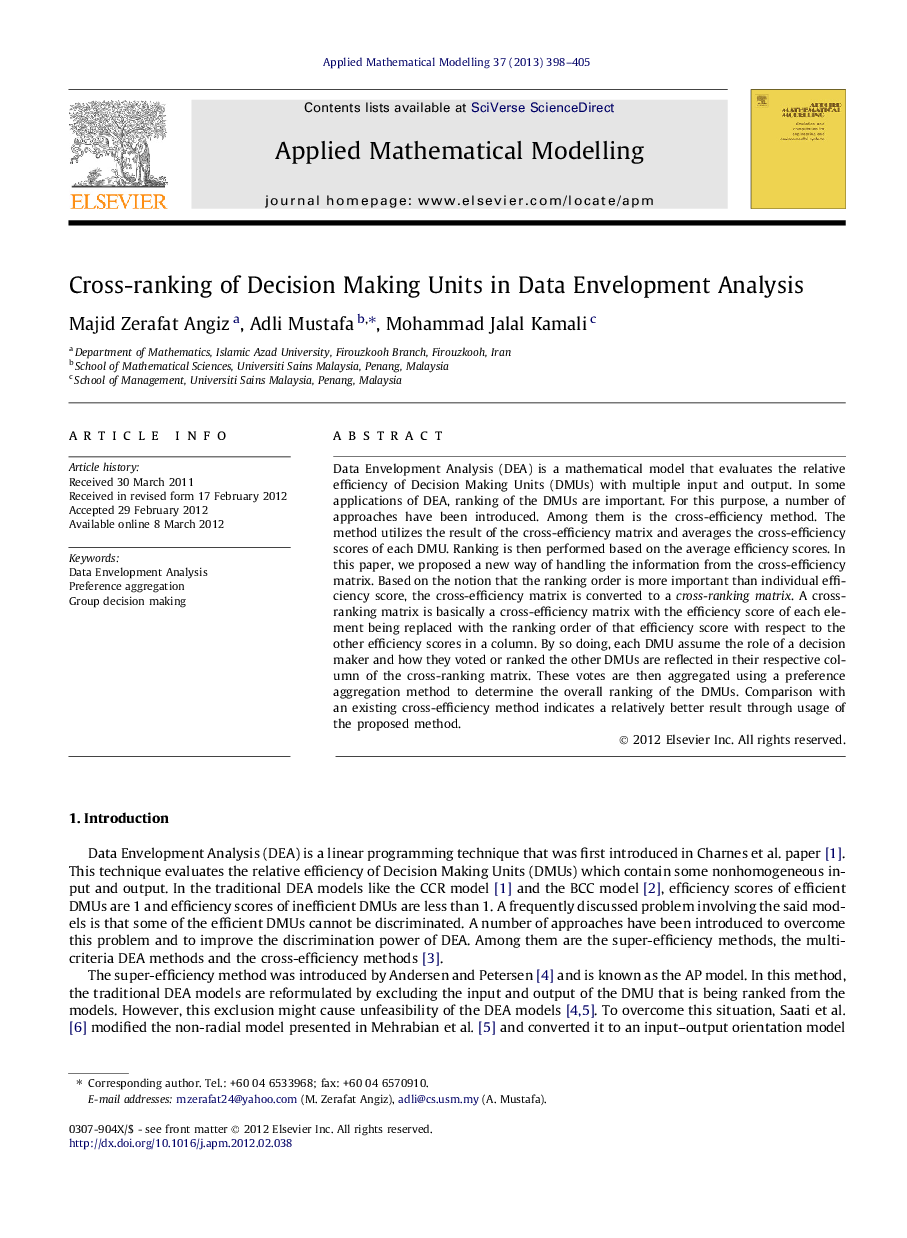| Article ID | Journal | Published Year | Pages | File Type |
|---|---|---|---|---|
| 8053116 | Applied Mathematical Modelling | 2013 | 8 Pages |
Abstract
Data Envelopment Analysis (DEA) is a mathematical model that evaluates the relative efficiency of Decision Making Units (DMUs) with multiple input and output. In some applications of DEA, ranking of the DMUs are important. For this purpose, a number of approaches have been introduced. Among them is the cross-efficiency method. The method utilizes the result of the cross-efficiency matrix and averages the cross-efficiency scores of each DMU. Ranking is then performed based on the average efficiency scores. In this paper, we proposed a new way of handling the information from the cross-efficiency matrix. Based on the notion that the ranking order is more important than individual efficiency score, the cross-efficiency matrix is converted to a cross-ranking matrix. A cross-ranking matrix is basically a cross-efficiency matrix with the efficiency score of each element being replaced with the ranking order of that efficiency score with respect to the other efficiency scores in a column. By so doing, each DMU assume the role of a decision maker and how they voted or ranked the other DMUs are reflected in their respective column of the cross-ranking matrix. These votes are then aggregated using a preference aggregation method to determine the overall ranking of the DMUs. Comparison with an existing cross-efficiency method indicates a relatively better result through usage of the proposed method.
Related Topics
Physical Sciences and Engineering
Engineering
Computational Mechanics
Authors
Majid Zerafat Angiz, Adli Mustafa, Mohammad Jalal Kamali,
